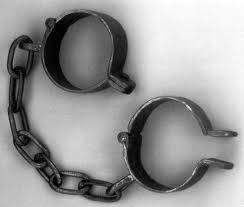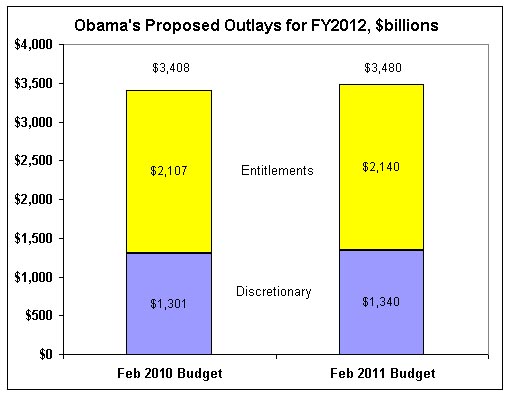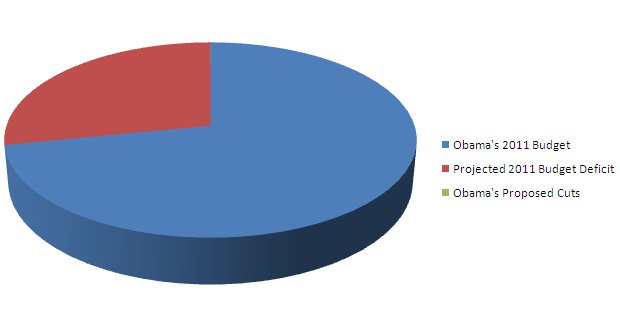10-14-2009

Permalink


Involuntary Servitude
|
Subject: Involuntary Servitude: The 13th Amendment Ain't What It Used
To Be
Excerpts from a 1997 paper by Jessica Parr titled,
Mandatory Community Service:
|
Mandatory community service programs are
increasingly becoming a standard part of the curriculum in
many public schools across the country. For example, about
500 public school districts, including those in Washington
D.C., Atlanta, and Detroit have adopted programs. A main
reason for this increase in mandatory community service
programs is because President Clinton has been strongly
stressing the importance of volunteerism among the
nation's students.
[Emphasis added]
|
Say it with me one more time: Mandatory service is not
volunteerism!
|
The court case Steirer v. Bethlehem Area School District
provides a good example of the controversy involved with
mandatory community service. The Bethlehem Area School
District requires that every public high school student
perform sixty hours of unpaid service during the
student's four years of high school. The students must
complete these hours after school, during weekends, or during
the summer. [...] Lynn Steirer, a student, disagreed with
the mandate. Therefore she did not receive her diploma.
[...] Her lawyer, Scott Bullock, an attorney for the
Institute for Justice, argued unsuccessfully in federal
district and appeals courts that mandated volunteerism
violates the Thirteenth Amendment, which prohibits
involuntary servitude. Bullock also claimed that such
service interfered with the First Amendment right to free
speech because required community service forces students
to express specific beliefs. [...] [L]ower courts, including
a federal appeals court, dismissed Bullock's Thirteenth
Amendment argument and rejected the notion that required
community service is modern-day slavery. In order for
the practice to be unconstitutional, the district would have
to legally or physically punish students who decline to
participate. Courts also rejected the Free Speech
argument because the students could either choose to
participate in the district's programs or design their
own.
[Emphasis added]
|
So, apparently the court ruled that forcing a child to attend school,
and then denying that child the possibility of graduating if they did
not participate in mandatory service, was not a form of
punishment! But if is isn't, I have some serious trouble
understanding the rationale operating here.
In researching this issue further, I discovered a very interesting
1999 paper by Rodney A. Smolla, a law professor at University of
Richmond, entitled:
The Constitutionality of Mandatory Public School Community
Service Programs. For readers wishing to get a better
handle on how today's courts view these issues, I highly recommend
taking a careful look at the entire article. Below I will excerpt
a few of the sections that help explain the decision in the above case.
As with all innovations in U.S. public life, such programs
are inevitably challenged in the courts. At first blush, the
challenges appear plausible: These programs are forced labor of
sorts, an oxymoronic coerced volunteerism, the
imposition of a particular philosophic vision of civic duty
and community life on the whole student populace, and the cry
that this just can't be constitutional is at least colorably
serious.
[...]
Broad objections are likely to be grounded in the claim that
community service is a form of involuntary servitude prohibited
by the Thirteenth Amendment, or a deprivation of the students'
or parents' liberty protected under the substantive due process
principles that have evolved from the Due Process Clause of the
Fourteenth Amendment.
[...]
Before examining specific constitutional challenges to
community service programs, one must contend with a broad
issue that sweeps across all discussion of the
constitutionality of such programs. The argument is that
community service programs amount to nothing more than
conditions attached to the "privilege" of a free public
education and thus pose no constitutional problems whatsoever.
While students may be forced by compulsory education laws
into some accredited school until they reach a specified age,
no student is literally forced to attend public schools. Those
students who can afford the cost may attend private schools
instead. This argument is a variant of one of the oldest
and most perplexing issues in constitutional law, that posed by
the "right-privilege" distinction and its doctrinal nemesis,
the "doctrine of unconstitutional conditions."
The right-privilege distinction is an old constitutional
theme. The distinction is grounded in a dichotomy between
"rights" and mere "privileges." In their classic conception,
rights are interests held by individuals independent of the
state. [...] In contrast to rights, privileges are interests
created by the grace of the state and dependent for their
existence on the state's sufferance. Nothing in the U.S.
Constitution requires a state or local government to operate
public schools. On one level, the existence of free public
schools is thus a privilege that the state is presumptively
free to extend or not extend to its student-citizens as it
pleases. [...] The right-privilege distinction in U.S.
constitutional law operated on the simple premise that
government is entitled to grant citizens privileges on the
condition that they surrender or curtail the exercise of
constitutional freedoms that they would otherwise enjoy.
[...] The tough-minded — if not downright mean-spirited
— logic of the right-privilege distinction has never
gone down easily in U.S. constitutional thought and has always
been held in check by a counter-doctrine known as the
"doctrine of unconstitutional conditions." [...] the Court
emphatically declared the following:
"For at least a quarter-century, this Court has made
clear that even though a person has no 'right' to a
valuable governmental benefit and even though the
government may deny him the benefit for any number of
reasons, there are some reasons upon which the government
may not rely. It may not deny a benefit to a person on a
basis that infringes his constitutionally protected
interests — especially, his interest in freedom of
speech. For if the government could deny a benefit to a
person because of his constitutionally protected speech or
associations, his exercise of those freedoms would in
effect be penalized and inhibited."
[Skipping considerable
information]
If a court can be persuaded that the community service is
indeed genuinely integrated with the function and mission of
the schools and the concomitant benefits of public education
the student is receiving, the court will be much more disposed
toward approving the program. With this broad unconstitutional
conditions framework in mind, analysis then turns to the
specific constitutional freedoms implicated by community
service proposals.
[...]
The Thirteenth Amendment abolished slavery and involuntary
servitude in the wake of the Civil War: "Neither slavery nor
involuntary servitude, except as a punishment for crime whereof
the party shall have been duly convicted, shall exist within
the United States, or any place subject to their jurisdiction."
A student challenging a community service program would not be
so brazen as to characterize such programs as literally akin to
the peculiar institution of African slavery that was the
historical impetus for the Thirteenth Amendment. However, the
student might very well argue with a degree of surface
verisimilitude that coerced public service is nonetheless both
servitude and involuntary, and thus barred by the broader
meanings that might be ascribed to the Amendment. Indeed,
there are pronouncements from the Supreme Court that appear
to invite such broader understandings of the Amendment's
coverage.
[...]
The mere claim that some percentage of one's labor or wealth
has been commandeered by a state for the benefit of others will
not, standing alone, be understood as constituting involuntary
servitude. Much of the modern welfare state is structured
around the redistribution of income and wealth. At a broad
conceptual level, to the extent one's income is taken by the
state through taxes for distribution to others, an involuntary
servitude is being placed on one's labor. In a progressive
taxation system, most citizens work some days for the
government and some days for themselves. When tax dollars are
redistributed, most citizens might be seen as working some
days for the benefit of others. Yet this form of indirect
labor transfer, and many other more direct impositions of
labor for the service of others, have never been interpreted
as violations of the Thirteenth Amendment and could not be
interpreted as such without stretching the purpose of the
Amendment wildly beyond its animating purpose and historical
context. Similarly, requirements that citizens perform
certain civic duties, such as jury service, have not been
construed as involuntary servitude. The most gripping example
is the military draft, a conscription that not only entails
a complete deprivation of one's ordinary liberty, but the risk
of crippling injury or death in the service of one's
country. The military draft has been rhetorically attacked
as a form of involuntary servitude that violates the Thirteenth
Amendment, but, despite the hyperbolic utility of the argument,
it has never been taken seriously by the Supreme Court. As
early as the 1918 Selective Draft Law Cases, the Court stated
that
"as we are unable to conceive upon what theory
the exaction by government from the citizen of the
performance of his supreme and noble duty of
contributing to the defense of the rights and honor of
the nation as the result of a war declared by the great
representative body of the people can be said to be the
imposition of involuntary servitude in violation of the
prohibitions of the Thirteenth Amendment, we are
constrained to the conclusion that the contention
to that effect is refuted by its mere statement."
Against this general backdrop, Thirteenth Amendment challenges
to school community service programs should not be deemed
viable. Community service programs are simply too far
removed from anything that might be persuasively labeled as
a badge or incident of slavery to run afoul of the Thirteenth
Amendment.
[Emphasis added]
|
So, based upon this line of argument, the Thirteenth Amendment's
reference to involuntary servitude is supposed to be read as
exactly equivalent to the conditions of African slavery. And any
form of servitude which does not rise fully to the level of such
slavery is not covered by said Amendment.
Again, I suggest reading the entire document in order to get the
full gist of these arguments and to see why the author argues that
other types of constitutional challenges to mandatory service also
fail.
I believe that a careful reader of the above excerpts will quickly
see, as I do, a number of glaring holes in the arguments being
presented. I do not offer these quotes in the belief that they
present a cogent case for accepting the legality of mandatory
service, nor do I think that they argue from a proper interpretation
of the Thirteenth Amendment. However, it is a fact, as the author
points out, that the courts have repeatedly upheld most forms of
conscription and the "taking" of citizens' labor and property for
redistribution under the guise of the welfare state, as
constitutional.
It certainly gives one pause to contemplate exactly where we currently
stand, and what steps would be required to move from our current
position towards a more rational reading and application of the
text of our Constitution!
Please send me your thoughts and ideas on the subject.
|








